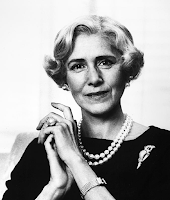"In this world, nothing can be said to be certain, except death and taxes." - Benjamin Franklin
The history of the income tax in the United States is a fascinating and complex one.
Civil War Income Tax (1861-1872):
During the Civil War, the U.S. government faced a dire need for revenue to fund the war effort. In 1861, Congress passed the Revenue Act, which included the nation's first federal income tax.
"We must have revenue, we must have more revenue; we cannot have it if we are to repeal the tariff, for that would prostrate the custom-house. We must, therefore, resort to direct taxation." - Senator John Sherman, 1861
Tax Act of 1894:
In 1894, Congress passed the Wilson-Gorman Tariff Act, which included the first peace time income tax.
This time the Supreme Court of the United States declared the income tax unconstitutional in the case of Pollock v. Farmer's Loan and Trust Co. [158 U.S. 601 (1895)], saying that direct taxes cannot be imposed on individuals but that taxes must be apportioned by population among states.
The 16th Amendment (1913):
Prior to 1913, the United States primarily funded its government through tariffs and excise taxes. The 16th Amendment to the Constitution was ratified, granting Congress the power to levy income taxes without apportionment among the states.
"The Congress shall have power to lay and collect taxes on incomes, from whatever source derived, without apportionment among the States, and without regard to any census or enumeration." - The 16th Amendment, 1913
World War I and the Modern Income Tax (1917):
During World War I, the income tax was expanded to raise additional revenue to support the war effort.
The New Deal and Progressive Taxation:
In the 1930s and 1940s, the income tax system became more progressive with higher tax rates on the wealthy.
"Taxes, after all, are the dues that we pay for the privileges of membership in an organized society." - Franklin D. Roosevelt, 1935
Post-War Tax Reforms (1940s-1960s):
The post-World War II period saw tax reforms aimed at reducing wartime deficits and promoting economic stability.
Tax Reform Act of 1986:
President Ronald Reagan signed the Tax Reform Act of 1986, which simplified the tax code and lowered tax rates while broadening the tax base.
"We're going to close the unproductive tax loopholes that have allowed some of the truly wealthy to avoid paying their fair share." - Ronald Reagan, 1985
Modern Taxation:
The U.S. income tax system has continued to evolve with various tax cuts, reforms, and debates about its structure and fairness.
"The hardest thing in the world to understand is the income tax." - Albert Einstein
These quotes and legislative acts provide a glimpse into the history and evolution of income taxation in the United States, reflecting both the necessity of revenue for government operations and the ongoing debate over tax policy and fairness.
Please hit the Follow button on the right hand side of the page to get more articles like this.





















